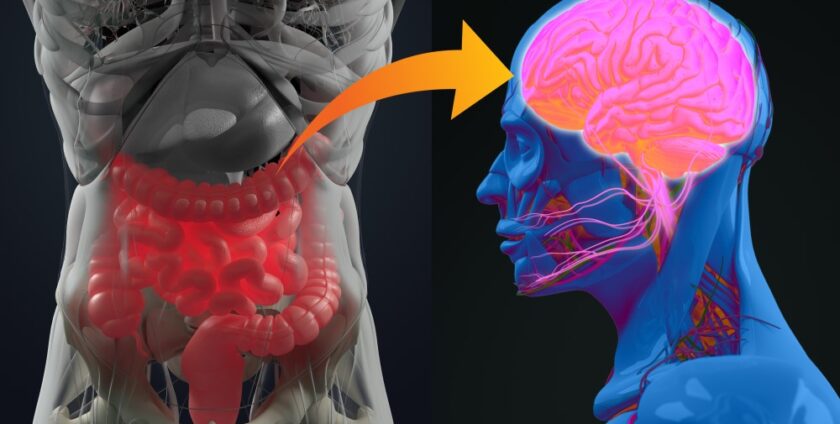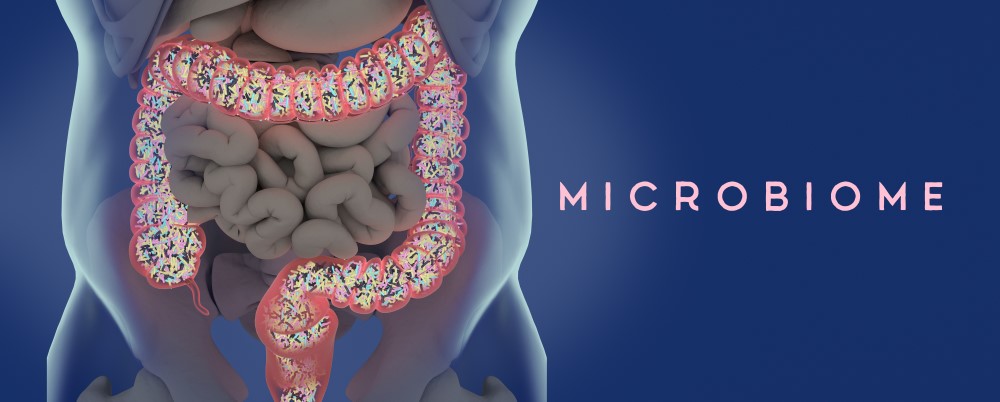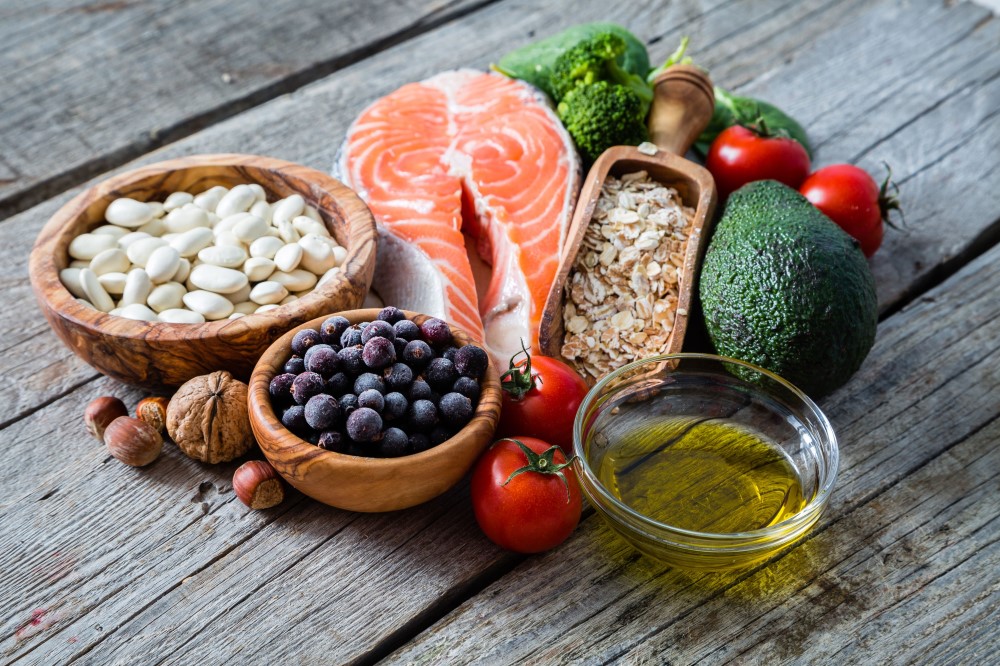The Gut-Brain Axis

The link between our brain and gut has long been recognised, with classic sayings such as “gut-feeling” and “butterflies in my tummy” being well known. Research has and continues to develop within this area, showing just how our gut and brain are linked. Most of us will personally likely experienced a stressful event causing us to visit the toilet more frequently.
The Gut-Brain Axis
The Gut-brain axis is a two way communication between the enteric nervous system (found in the lining of the gut) and the central nervous system (i.e. the brain). This two way communication, means the conversation goes in both directions i.e. our brain communicates with the gut and vice versa.
This communication involves three systems. Firstly, our nervous system, where our vagus nerve carries extensive signals from, our digestive system, to our brain. Secondly, our immune system – approximately 70% of our immune cells are found in our gastrointestinal tract, which also play a role in the gut-brain axis. Thirdly, our endocrine system, a network of glands in our body that make hormones, plays a role in the gut brain axis via hormones such as leptin (“satiety hormone”) and ghrelin (“hunger hormone”).
The Gut Microbiome
The gut microbiome is a collection of 1000s of different microorganisms along the GI tract which is unique to everyone. A beneficial composition of the gut microbiome can provide health benefits for the host. Several factors effect the composition of our microbiome, including diet which is considered are one of the key drivers in shaping our gut microbiome throughout our lives.

So, what can we include in our diet and lifestyle which supports a beneficial composition?
- A dietary pattern which is rich in fibre. Most adults should be aiming to including at least 30grams of fibre a day from a variety of sources including fruits and vegetables (at least 5 a day), choosing wholegrains, including nuts, and pulses, and eating a wide variety of colours.
- Probiotics and prebiotics.
- Fermented foods
- Lifestyle factors: not smoking, limiting alcohol consumption, exercising, reducing stress wherever possible.
Remember, choose foods that you enjoy and which is sustainable for you – for example, if you don’t enjoy fermented foods, you don’t need to include them to be “healthy.”
Microbiota-Gut-Brain Axis
The gut microbiome contributes to communications between the gut and the brain. While this is not yet fully understood, some research suggests it is through compounds produced by the microbiota. For example:
- Eating foods rich in prebiotic fibre such as artichokes, leeks, beans which are fermented by our gut microbiome and in the produces the microbiome produces compounds called Short Chain Fatty Acids (SCFAs) which have anti-inflammatory properties. SCFAs stimulate the production of serotonin (our “happy hormone”) and other gut hormones which together influence our emotion, and stress responses.
- Plant based foods increase the bacteria in the gut microbiome which leads to the production of tryptophan, an amino acid (the building blocks for protein) which is used in the production of serotonin.

- Dietary patterns which increase inflammation, for example those high in saturated fats, sugar, alcohol and reduced fruit and vegetable intake, have been associated with negative changes in our gut microbiome composition, and effects in our brains such as increasing the risk of depression.
It is important to note that this research remains in its infancy, and results are not yet conclusive, but there is a clear association, so watch this space.
Dietary pattern – The Mediterranean diet
An influential study conducted in 2017, called “the SMILES trial”, investigated how we can use diet, to influence our gut and as such our mental health. Over 12 weeks, participants were assigned to one of two groups:
- Diet intervention – which involved seeing a Dietitian to received support in making positive dietary changes such as increasing their fruit, vegetable, wholegrain, legume, nuts, seeds, fish, and healthy fat intake, while reducing intake of ultra-processed foods.
- Social support – control group.
It was concluded that dietary changes may be an effective way to support the treatment and/ or management of highly prevalent mental disorders.
Another study found of 67 individuals diagnosed with Major Depressive Disorder, remission occurred in 32.2% of the Mediterranean diet group compared to 8% in the control group.
The Mediterranean diet is commonly spoken about in this area of research, and includes:

- Plenty of fruits and vegetables, complex carbs, pulses and nuts
- Abundant use of Extra Virgin Olive Oil (EVOO) conferred health benefits, such as reducing the risk of cardiovascular disease.
- Moderate amounts of fish, poultry, dairy and eggs. Fish is particularly interesting in this area of research as it is a source of essential fatty acids which our CNS is largely composed of. Specifically, it has a high omega-3: omega 6 ratio which has anti-inflammatory affects, and associated with decreased risk of anxiety and depression. Therefore, in this UK it is recommended to consume 2 portions of fish/ week, one of which is oily such as salmon, mackerel and fresh tuna.
- Moderate amount of red wine with food. However, it must be said that recent research has queried any health benefits previously proposed of red wine. If you do choose to drink, it is recommended to follow national guidelines – in the UK that is to drink n more than 14 units a week, spread over at least 3 days.
- Small amounts of red and processed meats, salt, sweet foods.
Overall, it is important to look at a whole dietary pattern, and not just individual nutrients or foods
Considering fluids
- Hydration. A positive relationship has been found between water intake and mood. Hydration is particularly important for those who are more vulnerable due to poor fluid regulation such as infants and the elderly. On average, it is recommended to drink 6-8 glasses of fluid (about 1.2L) per day.
- Caffeine. Caffeine is a stimulant which, in small quantities, can increase our awareness, and mood. However, at higher amounts is associated with increased risk of anxiety and sleep disturbance. Caffeine is found in a variety of things including coffee, tea (including green tea, and small amounts in decaffeinated drinks!), sports drinks, and chocolate. Guidelines suggest that most people can safely consume up to 300mg of caffeine/ day. Some people are advised less. For example pregnant women are advised to consume no more than 200mg of caffeine (about 2 cups of caffeinated coffee) a day. It is also important to listen to your body, as different people have different sensitivities to caffeine. If you want to know more about caffeine, do read our blog on this topic.
Resources:
- What is a Mediterranean Diet?
- Food and Mood.
- British Dietetic Association Food Fact Sheet on Food and Mood.
References:
are hyperlinked throughout this blog. Do read the ones that interest you, if you would like a little more detail on the subject.
The above blog was prepared by Emilia Fish www.nutritionnourishment.com whilst working as an intern for begoodtoyourgut.co.uk, in association with Sian Shepherd, Specialist Gastroenterology Dietitian.
0 Comment
Leave a Reply